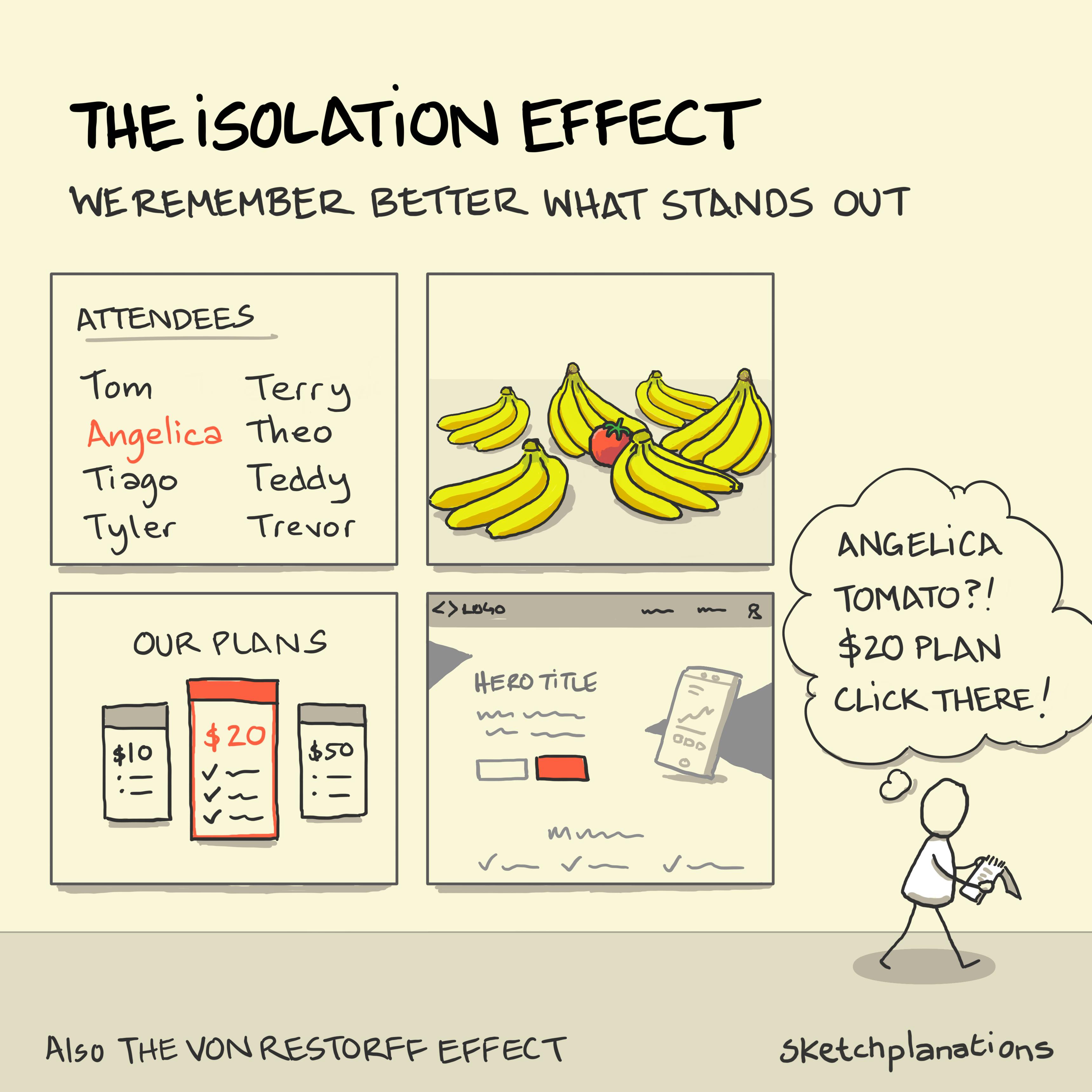The isolation effect

👇 Get new sketches each week
The isolation effect is our tendency to remember an item that stands out in some way from a set of otherwise similar items—you might easily guess, for example, which name we are more likely to remember from a list of Tom, Terry, Angelica, Theo and Tyler.
When presenting information, the isolation effect is practical if you wish to draw attention to specific items. By standardising the presentation of other items in a list, maybe by muting the colours, making them the same size, or removing features that stand out, you can draw people's attention and improve people's memory of your chosen items.
The isolation effect is standard in web design by using distinctiveness: red notification bubbles on a set of otherwise homogenous apps, a "most popular" plan more prominent than the other options, or a Call-To-Action (CTA) button in a contrasting colour.
The isolation effect is also known as the Von Restorff effect after the German psychiatrist Hedwig von Restorff. See, for example, Hunt, R.R. The subtlety of distinctiveness: What von Restorff really did. Psychonomic Bulletin & Review 2, 105–112 (1995) for a summary of Von Restorff's most cited paper on the effect.

